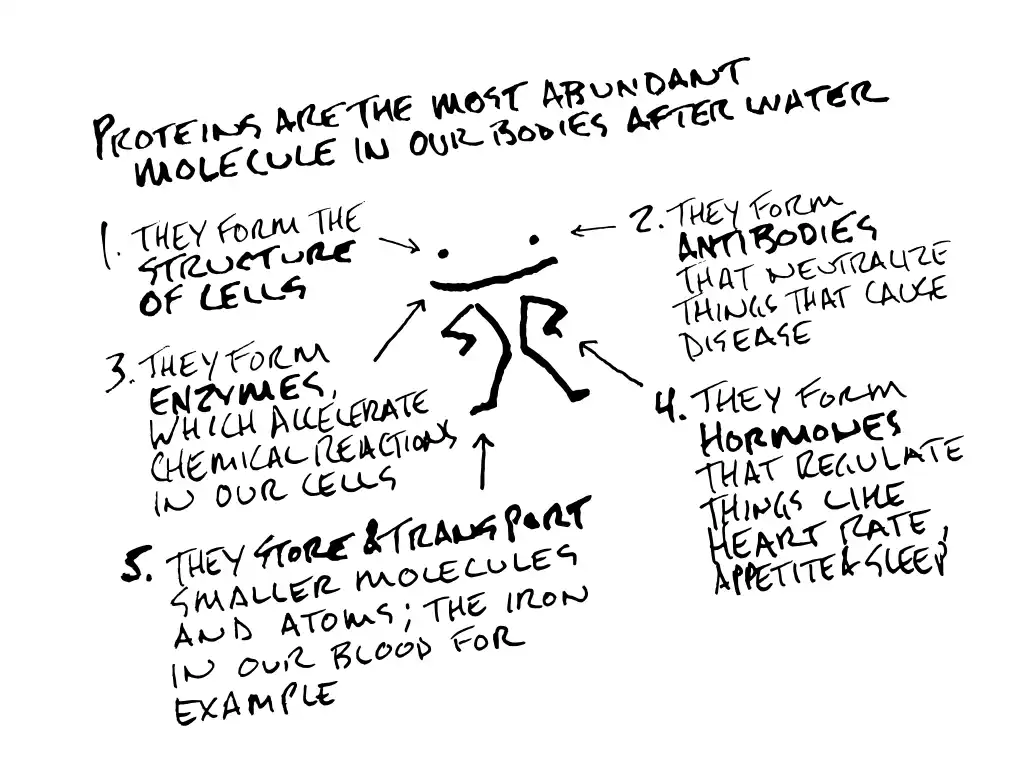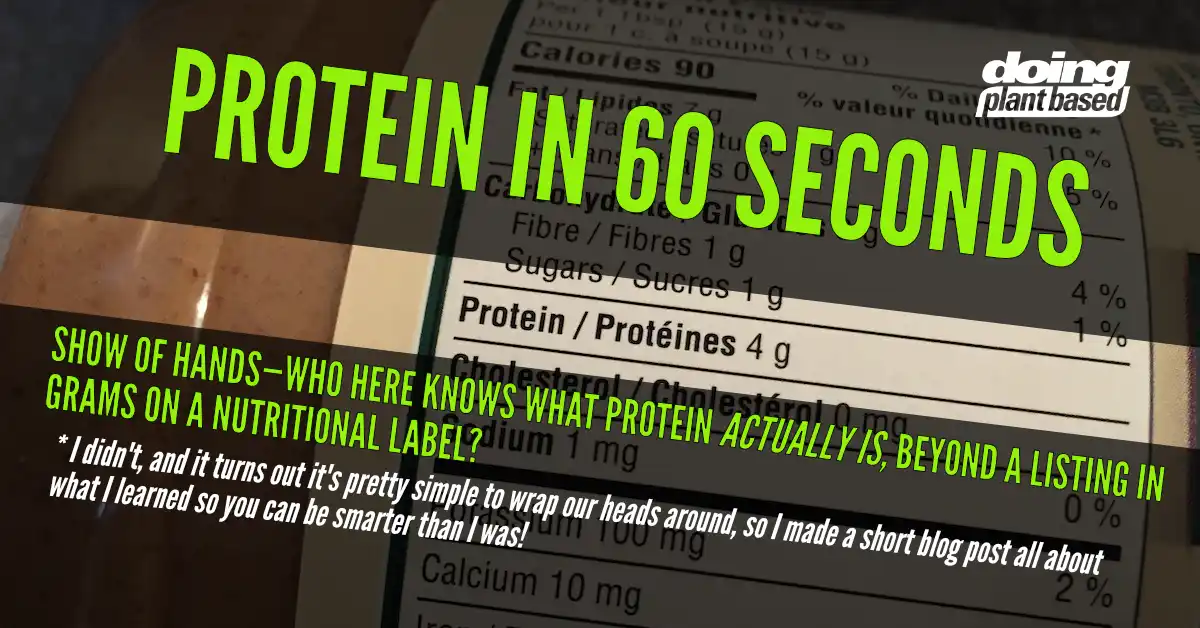Alright… Show of hands — who here knows what protein actually is, beyond a listing in grams on a nutritional label?
Yeah… my hands are in my pockets too; I used to think that protein was a building block of meat and dairy products exclusively, which was good to eat because of its caloric density, which in turn would make my muscles bigger when I ate it after a workout. (This is really what I thought LOL!)
The silliness is that the reality of protein is much more simple, and takes less time to learn than what we pick up via marketing:
Protein Is A Molecule Given Shape And Function By A Composition Of Amino Acids

When we break down protein, say via digestion, what we’re left with are amino acids; later, little machines called ribosomes inside our cells use these amino acids to assemble new proteins for use in our bodies. Our bodies don't use a single protein we've consumed before breaking it down into it's amino acids.
Our Protein Requirement Can Be Thought Of As An Amino Acid Requirement
The category of 'protein' isn't descriptive enough
in a dietary sense to say much about health.
The Healthspan Solution
by Julieanna Hever & Ray Cronise
This requirement isn’t unique to humans, either — there are 22 amino acids common to all life on Earth. Our bodies require 21 of these, but only ever synthesize just over half when we’re all grown and healthy; no animal can synthesize all of the amino acids — but plants can, and this is why we eat them.
Whole Plant Foods Contain All The Amino Acids
Different foods have different amounts of amino acids so a little bit of variety is important — the kind of variety like beans and rice, pasta with marinara sauce or peanut butter sandwiches, and if you really need to turn it up, adding a little tofu, tempeh or seitan — protein isn’t going to be the hard part in most people’s diets.
If you're concerned about your protein intake, don't be.
Surveys of athletes have consistently found that most,
simply by virtue of their high energy intake, on average meet
or even exceed their protein requirements without trying.
Plant-Based Sports Nutrition
by D. Enette Larson-Meyer, PhD, RDN
&
Matt Ruscigno, MPH, RDN
Let's summarize:
• Proteins are molecules made of amino acids
• Proteins have a variety of functions in all living organisms
• Our protein requirement can be thought of as an amino acid requirement
• All protein synthesis happens inside the cells of our bodies - we don't eat the proteins our bodies use
• Every whole plant food has ALL the amino acids, but not necessarily in the amounts we need, so a little variety in the food we eat is important
Have I missed anything important?
What did you think protein was before you looked into it?
Leave a comment below:

